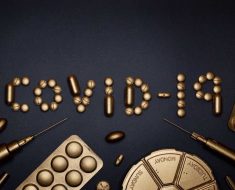
Sexual dysfunction is highly prevalent in women with lung cancer with most survey participants reporting little to no interest in sexual activity, according to research led by Narjust Florez (Duma), MD, associate director for the Cancer Care Equity Program at Dana-Farber Cancer Institute. The research was presented today at the International Association for the Study of Lung Cancer (IASLC) World Conference on Lung Cancer 2022.
Reporting results of the Sexual Health Assessment in Women with Lung Cancer (SHAWL) study, researchers show marked differences in sexual desire/interest and vaginal pain/discomfort when comparing before and after lung cancer diagnosis.
“The SHAWL study is about bringing women’s sexuality to the forefront of scientific discussions because it has been significantly understudied,” said Florez, who is also an oncologist in the Lowe Center for Thoracic Oncology at Dana-Farber. “When comparing the information before lung cancer diagnosis and after lung cancer diagnosis, the difference is staggering. Lung cancer significantly affects the sexual health of these women.”
The SHAWL study is an observational, cross-sectional, international survey administered via the GO2 Foundation for Lung Cancer and the Lung Cancer Registry. The study utilized the Patient-Reported Outcomes Measurement Information System (PROMIS) Sexual Function and Satisfaction Measures (a validated questionnaire) to evaluate sexual health. The multidisciplinary SHAWL study team is comprised of mostly female health professionals and includes a certified sexuality counselor and 2 lung cancer patient advocates.
https://youtube.com/watch?v=R93mCCLtZKU%3Fcolor%3Dwhite
Study participants were recruited between June 2020 to June 2021. Participants were asked about sexual activity pre-lung cancer diagnosis and over the “past 30 days” prior to completing the survey.
Of the 249 women completed the survey, most (64%) patients had stage IV lung cancer and 107 (45%) were receiving targeted therapy with 93 of those (87%) taking the medication for more than six months. At the time of survey completion, 78 participants (33%) were taking anti-depressants and 34 (14%) were taking beta-blockers. Within the prior 30 days, 127 (53%) participants had sexual activity with themselves or someone else. 183 (77%) participants reported little to no interest in sexual activity, and 159 (67%) stated rarely or never wanting to have sexual activity. The most common reasons negatively affecting participants’ satisfaction with their sex life included fatigue 95 (40%), feeling sad/unhappy 66 (28%), issues with their partners 52 (22%), and shortness of breath 36 (15%).
When comparing before and after lung cancer diagnosis, marked differences were noted in decreased sexual desire/interest (15% vs. 31%, p<0.001) and vaginal pain/discomfort (13% vs. 43%, p<0.001). Out of the 127 participants that had sexual activity in the last 30 days, 75 (59%) reported significant issues with vaginal dryness and 63 (26%) vaginal pain/discomfort during sexual activity.
Source: Read Full Article





